At Triterra, our core focus is to create healthier communities through practical and creative environmental solutions. We also understand the importance of creating healthier communities by giving back to the communities we live, work, and play in!
At Triterra, our core focus is to create healthier communities through practical and creative environmental solutions. We also understand the importance of creating healthier communities by giving back to the communities we live, work, and play in!
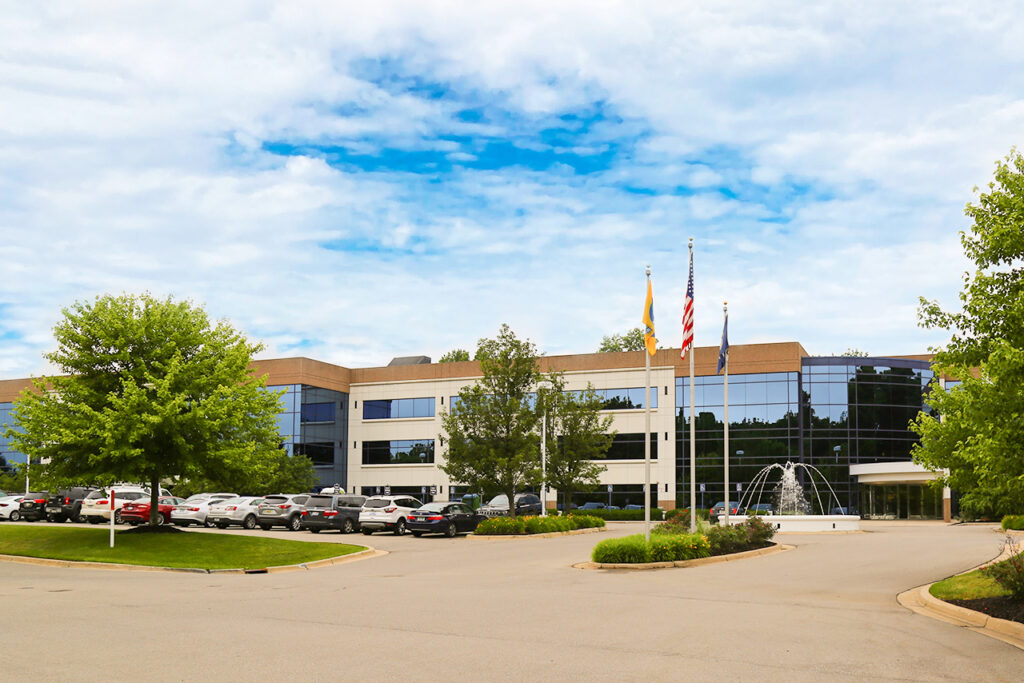
GRAND RAPIDS, MI – July 2022: Triterra, a Michigan-based Environmental Consulting Firm, is pleased to announce the opening of its Grand Rapids Office.
Triterra has opened its third office location at 625 Kenmoor Avenue SE, Ste. 204 in Grand Rapids. Triterra’s Corporate Office location will remain in Lansing, and they also have an Alma, Michigan office location.
In 2020 Triterra hired Craig S. Mulica as the West Michigan Regional Director and due to Covid, our Grand Rapids employees continued to work remotely while servicing the Grand Rapids and surrounding areas.
“We are excited to finally be opening our Grand Rapids location, culture is very important to Triterra and having a collaborative space helps strengthen our culture. We also look forward to building new relationships and continuing to help our clients reach their goals” said Don McNabb, CEO of Triterra.
The 2,300-square foot space will allow us to expand and grow in the West Michigan market as well as providing a space for client meetings.
The LEAF is Triterra’s quarterly e-newsletter.
As always- we’ve kept it brief and relevant!
IN THIS ISSUE:
1. Triterra announces summer interns
2. Blog: Thinking of a career in environmental consulting?
3. Project Highlight: The Thompson Block Project
4. Meet Caitlin Preuss, Environmental Scientist
Triterra is a professional environmental consulting firm specializing in brownfield development, environmental consulting, and natural resource management services. Our team is dedicated to improving the quality of the natural environment within the community while providing consulting services that are tailored to the best interests of our clients. Our staff is committed to providing practical environmental solutions through a creative process that incorporates integrity, innovation, and responsiveness.
Click here to read the entire issue.
If you have never been in the consulting world, you may not know what billable hours are, I did not, and we are not alone. When I first started, I was asked to keep track of my hours, which I did, but at the end of the week when it was time to fill out my timecard I did not have the correct information. I just had what time I got in and what time I left. Good thing I didn’t have any projects to bill to. When you are working on a project you will need to keep track of the time spent and the activity you were doing, whether it is taking samples, filling out the chain of custody, or writing a report. Billing to projects is how the company stays on budget and gets paid by the client.
When it comes to starting in environmental consulting, people have a lot of different ideas about what the job entails, especially when you are getting advice from different sources. Each firm is different, and I can only speak on how Triterra does things because this is the only environmental consulting firm I have ever worked at. Below is a perfect example of what two of our newer staff were told to expect, or just what they thought to expect when starting in their careers as environmental consultants.
Taylor: “I thought environmental consulting would mostly be a lot of in-office and reporting type of work but am super happy to say it’s split with a lot of fieldwork which I find super fun and truly enjoy.”
Kate: “There were countless times I was told to expect to be working out in the field 5 days a week and even during some interviews before I accepted my position at Triterra, that was the case. 5 days a week for approximately 5 years is what I was told to expect and then after that, I would be allowed to be involved with more project management. With Triterra, however, I was pleasantly surprised with the balance between field and office work from the start. I am fully aware of the luxury I have as both the field worker and the one to handle the report writing and sometimes even communication with the clients. I didn’t expect to have this much responsibility this early into my career, but I am so grateful for it.”
Lucas believes “you should reach out and talk to some consultants because that’s the only way you’re going to get a feel for what they truly do. Your academic institution probably can’t give you as accurate of a description as an actual consultant can.”
Also, if you have the opportunity to intern with a firm, do it, it will open your eyes to the world of consulting and help you on your journey to becoming an environmental consultant.
Attention to detail and great communication skills are very important aspects of the job, also working on a team. Being a great team member is always appreciated especially when things don’t always go as planned, you need to be able to problem-solve and help where needed.
Here are a few things Alan believes are important in becoming or being an environmental consultant: Strong references, experience in a lab setting (depending on the consulting career track), strong report writing skills, ability to effectively communicate and in a positive manner, teamwork ability, time management skills, willingness to work in inclement weather (more important in the early years of consulting).
While in school, cultivate relationships/opportunities with professors and upper-level classmen. Join campus groups such as the “geology club,” and if possible, get experience working in professor’s labs if the opportunity is available. Professor’s opinions of you can carry significant weight, and they are great references. Additionally, getting to know others, especially upper-level classmen, can significantly increase your chances of finding, and landing, a job. As the upper-level classmen go on to start their careers, they will likely report back to the clubs/groups at your school about job openings, and if you are familiar with these people, they can likely put in a good word for you and get you into the interview process.
Never burn a bridge with a former employer, coworker, or subcontractor. The environmental consulting field is small and there is a good chance that you will end up crossing paths again in the future. Kyle has a perfect example as to why. “I worked with a project manager at an asbestos abatement company. Whenever I had an issue with his company’s performance, I was always calm and polite as I addressed the issues that I needed to have corrected. That individual always appreciated the professionalism that I provided, and he is now an EGLE inspector for the state of Michigan who shows up to audit my work practices and he maintains that same professionalism and respect that I showed to him earlier when we were working together.”
Well, that isn’t one hundred percent true in every case, but Connor shares with us what his thoughts were on the weather and field work. “I should mention that I started in November. So, when I started it was getting into late fall and the weather was getting cooler. I remember thinking ‘wow, field work will probably stop in a month or so when the ground freezes.’ Nope. Dead wrong. It’s a year-round business, all of it, that means not only do site walkovers continue to happen but also field work in the snow. So, throw on your warmest clothes and get out there. That was one of the biggest surprises to me, not one I was prepared for either. Field work in the snow isn’t my favorite thing to do, but it needs to get done, so I bundle up and do it.”
Connor said “before I started at Triterra, I had this image in my head that environmental consulting was working with large companies and corporations, specifically those that generated large amounts of pollutants and finding environmental solutions to the waste that they generate (i.e., engineering controls to limit/contain, preparation for spills or releases, and how to properly dispose of the waste created). I thought it was a straightforward one-faced job. My mental image couldn’t have been farther off from what we actually do. When I started at Triterra I soon learned that rarely are we working with huge companies, it’s mainly small businesses, real estate companies, and private investors whose needs range from Phase I ESAs to Brownfield Plans, and everything in between. Nor is it a one-faceted job, there are many aspects that I never knew existed and subcategories that open doors into different areas of environmental consulting. This was one thing that surprised me the most and something that I enjoy about consulting, as it has allowed me to find my niche within our different areas of expertise.”
Here at Triterra, we strive to maintain great company culture, we love the family feel of our firm and will continue to make great efforts to continue this as we grow. We have implemented quarterly staff outings, and, on most Fridays, you can find our staff at a local restaurant enjoying lunch together. We also believe in internal promotion; we are always trying to create a clear career path to be able to move up in the company as the staff learns and grows. Although we work tirelessly on our culture, there are some things we can’t compete with, such as dream jobs out of state, the curiosity about what other firms may offer, or changes in life situations that may take you on a different journey. Mariah started with Triterra as an intern and was hired full time as a Geologist, here is her story:
“With being so young in my career still, it was very hard to not wonder what other firms are like and the possible opportunities that could come with that. I knew going into the environmental field within Michigan, I wouldn’t be making a high salary starting off and it was something I would have to work for. But like anyone, I was curious about what was out there outside of Triterra and started thinking that money was my motive. After taking the leap and working at a very large national firm for three short months, I begin to realize that money wasn’t everything to me. It was the culture, my colleagues, and being passionate about my work regardless of the dollar amount. At the end of the day, I realized I was much happier at Triterra for many reasons: flexibility, support, values, respect, professional growth, and so much more. All of these characteristics, I value much more than money because the money comes and goes regardless, but the culture at Triterra is priceless. I am very ecstatic to be part of Team Triterra again. “
The LEAF is Triterra’s quarterly e-newsletter.
As always- we’ve kept it brief and relevant!
IN THIS ISSUE:
Triterra is a professional environmental consulting firm specializing in brownfield development, environmental consulting, and natural resource management services. Our team is dedicated to improving the quality of the natural environment within the community while providing consulting services that are tailored to the best interests of our clients. Our staff is committed to providing practical environmental solutions through a creative process that incorporates integrity, innovation, and responsiveness.
Click here to read the entire issue.
LANSING, MI – February 2022: Triterra, a Michigan-based Environmental Consulting Firm, is pleased to announce the addition of three new staff members.
Kyle A. Clark joins Triterra as the Director of Industrial Hygiene, working out of the Grand Rapids office. Clark holds a bachelor’s degree in Biology with a concentration in environmental health and safety from Central Michigan University. He oversees the overall industrial hygiene projects and services that Triterra offers to our clients and ensures work is performed in compliance with all OSHA, EPA, and other regulatory agency requirements.
Kathleen Christnagel joins Triterra as an Environmental Scientist, working as a part of the due diligence team. Christnagel holds a Bachelor of Science degree in Biology from Alma College. Her work focuses on Environmental Due Diligence Services. Kathleen also supports the Remediation Group and Natural Resources Group. Christnagel conducts Phase I Environmental Site Assessments (ESAs), field assignments, data analysis, and technical report preparation. She understands regulatory requirements and considerations necessary for environmental due diligence projects.
Alexsis Bowen joins Triterra as an Environmental Scientist, working as a part of the due diligence team. Bowen holds a Bachelor of Science degree in Geoscience from Tennessee Tech University. Her work focuses on Environmental Due Diligence Services. Alexsis also supports the Remediation Group and Natural Resources Group. Bowen conducts Phase I Environmental Site Assessments (ESAs), field assignments, data analysis, and technical report preparation. She understands regulatory requirements and considerations necessary for environmental due diligence projects.
Triterra has the experience and equipment to perform demolition site management and demolition air monitoring. Triterra has been involved with hundreds of demolition-related projects and has performed demolition air monitoring for asbestos, lead, and nuisance dust.
Triterra can develop demolition specifications and health and safety plans that provide the direction required for all contractors and inspectors to use when conducting activities on-site. During demolition activities, Triterra site representatives ensure regulatory compliance with key issues such as UST removal, universal waste removal, and abatement of asbestos, lead, and mold-laden building materials. When necessary, Triterra will provide site clearance, air monitoring, and the coordination of site-wide dust control measures.
Triterra offers a full-service approach for full facility decommissioning.
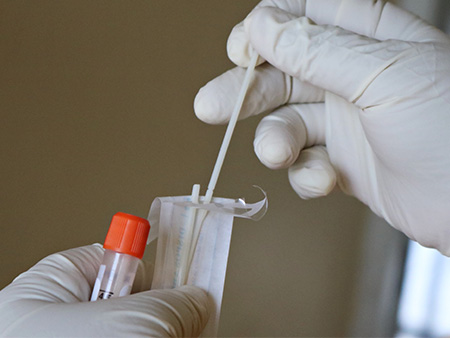 Project: Apartment Complex
Project: Apartment Complex
Location: East Lansing, Michigan
Description: Indoor Air Quality and Mold Assessment Services
Weather happens, and unfortunately for property owners and their tenants, it can cause any number of headaches. In the case of an Apartment Complex in East Lansing, heavy rains led to the flooding of two garden-level apartments. The property management team quickly responded to mitigate the issue and ensure the health and safety of their tenants. Triterra was brought in to conduct professional indoor-air and mold sampling and assess the conditions therein. Providing rapid turnaround, Triterra analyzed the results of their sampling efforts and provided best-practice methods for remediating the issues identified. Due to the swift response of everyone involved, issues caused by the flooding were quickly rectified and healthy living conditions were restored.
Hazard exposure monitoring is the process of measuring the frequency, magnitude, and duration of potential exposure to a known hazard to human life. Examples of potential workplace hazards include nuisance dust, various types of fuels, solvents, noise, radiation, and various biological hazards. Exposure monitoring is a prime assessment to determine the types of engineering controls required to reduce or remove the hazard to acceptable levels to promote and healthy and safe work environment.
Triterra performs exposure monitoring after consulting with the client to identify each potential exposure hazard that may exist. Triterra will work to identify, evaluate, anticipate, and reduce workplace exposure hazards through exposure monitoring.
If you’re concerned about potential workplace hazards, please consult with Triterra to develop a detailed work plan for hazard exposure monitoring.
Triterra routinely provides expert assessment services for Hazardous Materials, including Asbestos, Mold, and Lead, in commercial, residential, and industrial settings. Considering hazardous materials can pose significant environmental and public health-related challenges, we combine our knowledge of inspection methods, applicable regulations, and construction practices along with a strong understanding of our client’s liability to develop effective strategies to address the issue(s) identified.
According to the Centers for Disease Control and Prevention (CDC), for some people, mold can cause a stuffy nose, sore throat, coughing or wheezing, burning eyes, or skin rash. People with asthma or who are allergic to mold may have severe reactions. Immune-compromised people and people with chronic lung disease may get infections in their lungs from mold. Mold will grow where there is moisture, such as around leaks in roofs, windows, or pipes, or where there has been a flood. Mold grows on paper, cardboard, ceiling tiles, and wood. Mold can also grow in dust, paint, wallpaper, building insulation, drywall, plaster, carpet, and upholstery.
Triterra offers a comprehensive and turn-key approach to all indoor air quality and mold investigations. Triterra is equipped with trained staff to perform air, bulk, dust, and swap testing for the presence of mold within your building. Triterra can identify the hazards and develop remediation plans with licensed and trained mold mitigation experts to rectify any mold-related hazards. Post air sampling is part of the remediation process and Triterra will make sure that the building is safe to reoccupy following any mold remediation activities.
Triterra offers a multitude of asbestos, lead, and OSHA compliance training. Triterra can provide:
Radon gas is a naturally occurring noble gas that is released from the decay of Uranium within the earth’s foundation. Radon gas is colorless, odorless, and is one of the leading causes of lung cancer in the United States.
Triterra has experienced staff to perform short-term and long-term duration sampling within single-family, multi-family, commercial, and industrial properties. Triterra can also assist with the installation of radon mitigation systems as well as provide post-mitigation site assessments to ensure that radon mitigation systems are working adequately.
Triterra has State of Michigan Department of Health & Human Services (MDHHS) Lead Inspectors and Risk Assessors approved to conduct drinking water samples for the analysis of lead in drinking water. Triterra works with developers, homeowners, and educational facilities to perform drinking water analysis to determine lead concentrations.
The Occupational Safety & Health Administration (OSHA) requires exposure monitoring for any and all employees when lead-bearing paint may be impacted during construction or maintenance activities. Triterra has the equipment and experience to review the proposed scope of work and generate an air exposure monitoring plan to comply with all OSHA requirements. Triterra works with construction trades to ensure that workers have adequate training, air monitoring data, and engineering controls in place to work safely and effectively.
Triterra has the experience and experience to assess and proactively manage lead-based paint concerns related to the use, demolition, or renovation of facilities. Triterra has State of Michigan Department of Health & Human Services (MDHHS) Lead Inspectors & Risk Assessors who routinely perform lead surveys on industrial and commercial structures to facilitate renovations and demolition, and also perform lead-based paint inspections and risk assessments on residential properties or child-occupied facilities. Triterra routinely works with K-12 schools that require Lead Risk Assessments for daycare compliance.
Triterras experience includes compliance with the State of Michigan and local government entities, the U.S. Department of Housing and Urban Development (HUD), the Occupational Safety and Health Administration (OSHA), and the U.S. Environmental Protection Agency (EPA).
Triterra can provide a “turn-key” approach that involves the identification of lead-based paint and lead hazards as well as developing a remediation scope of work and bidding out the abatement activities to State of Michigan licensed lead abatement contractors. Triterra also performs clearance sampling and final reporting for all inspections and abatement-related activities.
Following the identification of hazardous materials associated with the project, Triterra will review construction documents and regulatory requirements to develop hazardous material abatement project designs and bid documents. Triterra has State of Michigan and EPA-approved Asbestos Project Designers experienced to develop safe and efficient project designs which keep a project on budget and on schedule.
Triterra has accredited and trained staff to perform on-site phase-contrast microscopy (PCM) analysis for worker exposure air monitoring, background, perimeter, and clearance air monitoring for asbestos abatement work. As part of Triterras asbestos abatement management services, Triterras employees will provide the necessary equipment, analysis, and experience required to keep the project moving forward efficiently and safely. Air sampling and analysis follow the National Institute for Occupational Safety and Health (NIOSH) 7400 Method.
Triterra partners with American Industrial Hygiene Association (AIHA) and National Voluntary Laboratory Accreditation Program (NVLAP) laboratories to perform Transmission Electron Microscopy (TEM) required air monitoring clearances for K-12 projects.
The Asbestos Hazard Emergency Response Act (AHERA) rule became effective on December 14, 1987 and applies to all non-profit elementary and secondary schools nationwide, both public and private. Local Education Agencies (LEAs) are responsible for ensuring compliance with the AHERA rule and are required, among other things, to develop and maintain an up-to-date Asbestos Management Plan (AMP), conduct training, inspections, and sampling related to asbestos.
An asbestos management plan is required to provide documentation of the recommended asbestos response actions, the location of asbestos within the school, and any action taken to repair or remove the material. The school authority must maintain records to be included in the Asbestos Management Plan.
Triterra works with various school districts across the State of Michigan to perform period surveillance inspections to visually inspect asbestos-containing materials are in good condition and do not provide a health hazard to school occupants as well as perform 3-year AHERA reinspections.
Triterra has State of Michigan and EPA-approved AHERA Management Planners on staff to conduct thorough investigations and help school districts remain in compliance with AHERA regulations.
Regulatory agencies like OSHA and EPA require asbestos surveys and inspections to be completed on projects at education, commercial, multi-family, and industrial buildings undergoing renovations or demolition.
The first step in any successful renovation or demolition project includes the identification of asbestos-containing materials prior to starting any work. Triterra conducts pre-demolition/renovation inspections to meet the specific renovation and/or demolition scope associated with any sized project.
Triterra works with facility owners, developers, construction managers, bank lenders, and trade workers to review construction documents and historical sampling to provide a thorough inspection of all potential workplace asbestos hazards. Triterras hazardous materials inspections include asbestos-containing materials, heavy metal-containing paints, universal waste, and other hazards regulated by OSHA and EPA.
Triterra has EPA and the State of Michigan accredited Asbestos Inspectors, Management Planners and Project Designers to assist with every type of project from small-scale residential to multi-facility developments.
 Project: MSU Federal Credit Union, Cedar Street Branch
Project: MSU Federal Credit Union, Cedar Street Branch
Location: Lansing, Michigan
Duration: 2015-2020
The MSUFCU Cedar Street Project transformed the former gas station site located in Delhi Charter Township into an MSUFCU local branch office. In 2015 Delhi Township identified this site as a priority development site. Triterra provided Brownfield Consulting services for the developer, which secured $1.125 million in Brownfield incentives through multiple local and state sources including a $370,000 Brownfield Redevelopment Grant from the Michigan Department of Environment, Great Lakes and Energy (EGLE) and $755k in Brownfield Tax Increment Financing (TIF) to raze the former obsolete building and address environmental conditions at the site. Overall benefit to the community includes replacement of a former vacant filling station building with a new branch building on a formerly tax-reverted property that generated zero tax revenue for the township. The improvements to the property are permanent and will significantly increase the taxable value of the property, as well as assist in increasing the property values in the area. The project brings significant investment to this parcel, adds to the economic vitality of the Cedar Street corridor, and adds to the success of the township’s broader development strategy.
 Project: Capitol View
Project: Capitol View
Location: Lansing, Michigan
Duration: 2015-2020
This Capitol View redevelopment project brings 96 residential units and 4,430 sq ft of office & retail space to the heart of Downtown Lansing, just north of the State Capitol. Triterra provided Brownfield Consulting Services for the developer, George F. Eyde Family, LLC, and helped secure $4 million in Brownfield incentives through multiple local and state sources, including the Michigan Community Revitalization Program (MCRP) Grant and Loan Program, the Lansing Regional Brownfield Coalition EPA Assessment Grant Program, Brownfield Tax Increment Financing (TIF), and a tax abatement through the Obsolete Property Rehabilitation Act (OPRA). Triterra also conducted a baseline environmental assessment (BEA), hazardous materials surveys, and due care consulting for this project. Formerly the Lansing Housing Commission, the building has been vacant for nearly 15 years and required extensive interior demolition, as well as remediation of mold growth and asbestos-containing materials. Without brownfield tax increment reimbursement, the cost burden related to brownfield conditions would have made the project financially unfeasible.
 Position: Project Environmental Scientist or Geologist
Position: Project Environmental Scientist or Geologist
Type: Full Time
Location: Michigan
Contact: hr@triterra.us
We are currently seeking a Project Environmental Scientist or Geologist with 3-8 years of experience. The primary role of this position will be to manage projects in our Environmental Due Diligence, Investigation & Remediation, or Brownfield service groups. The primary functions of this position would be to oversee all project phases including, work scope development, client communication, implementation, reporting, budget tracking, invoicing, change orders, and account collections. Additional responsibilities would include maintaining a thorough understanding of applicable regulations, understanding and prioritizing projects tasks, developing strong working relationships with clients, training entry-level staff, providing QA/QC project reviews, preparing technical reports, and assisting with business development activities.
If interested, please send a cover letter and resume to hr@triterra.us
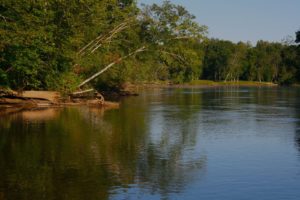 Position: Staff Environmental Scientist or Geologist
Position: Staff Environmental Scientist or Geologist
Type: Full Time
Location: Michigan
Contact: hr@triterra.us
We are currently seeking a Staff Environmental Scientist or Geologist with 0-3 years of experience. The primary role of this position will be to provide assistance to our Environmental Due Diligence or Investigation & Remediation service groups. Our Environmental Due Diligence group provides consulting services to individuals looking to acquire property or financial institutions that support the purchase of real estate. Our Investigation & Remediation group provides consulting services in response to ongoing liabilities with Part 201 (Environmental Remediation) and Part 213 (Leaking Underground Storage Tanks) of Public Act 451 as well as hazardous materials assessments (asbestos, lead, and mold). Daily work tasks would include completing field assignments (i.e. advancement of soil borings, collection of soil and groundwater samples, site visits to assess current property conditions, etc.), working with project managers to understand project goals and objectives, data tabulation and interpretation, and technical report writing.
If interested, please send a cover letter and resume to hr@triterra.us
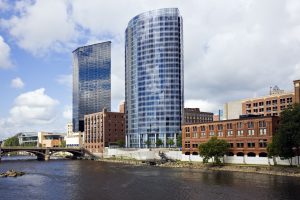 Position: Senior Environmental Scientist, Geologist, or Consultant
Position: Senior Environmental Scientist, Geologist, or Consultant
Type: Full Time
Location: Michigan
Contact: hr@triterra.us
We are currently seeking a Senior Environmental Scientist or Geologist with 8+ years of experience. The primary role of this position will be to manage projects in our Environmental Due Diligence, Investigation & Remediation, or Brownfield service groups. The primary functions of this position would be to oversee all project phases including, work scope development, client communication, implementation, reporting, budget tracking, invoicing, change orders, and account collections. Additional responsibilities would include maintaining a thorough understanding of applicable regulations, understanding and prioritizing projects tasks, developing strong working relationships with clients, training and mentoring staff, providing QA/QC project reviews, preparing and reviewing technical reports, and regular business development activities.
If interested, please send a cover letter and resume to hr@triterra.us
 Project: 409 on Nine
Project: 409 on Nine
Location: Ferndale, Michigan
Duration: 2016-2019
Triterra conducted environmental due diligence and vapor mitigation services on this mixed-use, multi-story development located along the 9 Mile corridor in the immediate vicinity of City Hall in Downtown Ferndale. Triterra also assisted in amending a restrictive covenant, which then allowed for the planned development and secured $2.6 million in Brownfield Tax Increment Financing (TIF). Redevelopment of the site had been previously hindered due to extensive brownfield conditions including, but not limited to, outdated building structures and site features, and the presence of soil, groundwater, and soil gas contamination. The project was only financially feasible through the implementation of financial incentives to address Brownfield conditions.
Completed in 2020, the project increased urban density and existing green space in the corridor, as well as provided additional housing and employment in the downtown area.
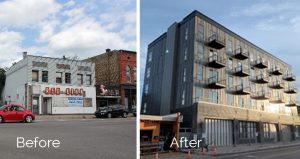 Project: Bridge Street Lofts
Project: Bridge Street Lofts
Location: Grand Rapids, Michigan
Duration: 2017-2019
The project involved the redevelopment of the former Red Lion building in the city of Grant Rapids. The newly constructed, 5-story, mixed-use building now includes 9,100 square feet of ground-floor restaurant space and 44 apartments. Through a partnership with Michigan Community Capital, 30% of units are attainable housing available to households earning 80% of the area median income (AMI).
Triterra provided Brownfield Consulting services for the developer, 3MISSION, which secured $2.1 million in Brownfield incentives through multiple local and state sources including a $330,000 Brownfield Redevelopment Grant from the Michigan Department of Environment, Great Lakes and Energy (EGLE) and $1.76mm in Brownfield Tax Increment Financing (TIF) to raze the former obsolete building and address environmental conditions at the site.
 Project: Provident Place
Project: Provident Place
Location: Lansing, Michigan
Duration: 2015-2018
Another exciting project along the Michigan Avenue Corridor connecting Lansing and East Lansing! The Provident Place Redevelopment Project transformed the former gas station site located in the Lansing Eastside Neighborhood into a vibrant mixed-use development. The 4 story building includes 9,500 square feet of office/retail space and 37 residential units. Triterra’s role in this project included environmental due diligence services on behalf of the developer to evaluate and understand environmental challenges at the property including the presence of abandoned underground storage tanks, environmental contamination, and asbestos-containing building materials. Triterra conducted an assessment of available economic incentives and implemented several Brownfield incentives including environmental assessment under an EPA Brownfield Assessment Grant, approval of Brownfield tax increment financing (TIF) allowing for local and state tax increment revenue capture, and ultimately the award of $1 million in cleanup funding through the Michigan Department of Environmental Quality (MDEQ) Brownfield Redevelopment Grant and Loan Program. Over $2.1 million in Brownfield Incentives were approved for this vital project located between the state Capital Building and Michigan State University.
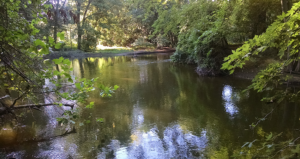 Project: Wetland Restoration
Project: Wetland Restoration
Location: Grand Ledge, Michigan
Duration: March 2007 to May 2010
My New Content
 Project: Daycare Center
Project: Daycare Center
Location:Charlotte, Michigan
Description: Lead Assessment Services
Triterra offers a variety of lead assessment services, including lead-based paint inspections, lead hazard risk assessments, lead-in-drinking water analysis, and lead-in-soil sampling. With respect to daycare centers, the State of Michigan requires a number of inspections be completed prior to issuing a license to the childcare provider. For daycare centers/homes built prior to 1978, one such required inspection is a Lead Hazard Risk Assessment.
A daycare center located in Charlotte, Michigan requested a lead hazard risk assessment from Triterra in order to acquire their childcare license. This included an assessment of all painted surfaces, dust wipe sampling for lead, assessment of painted playground equipment, and sampling of soil in the outdoor child play areas. After gathering and analyzing the data, Triterra confirmed that no lead hazards were present. With report in-hand, the Daycare Center applied for and received their childcare license and has proudly been serving the Eaton County community.
 Project: Water Quality Investigation
Project: Water Quality Investigation
Location: Mid-Michigan
Duration: October 2014 – September 2017
Triterra was retained by a County Drain Commissioner to investigate water quality concerns associated with an early 1900s storm sewer system within an urban drainage system. The drainage area consists of approximately 80% impervious cover containing a large commercial business district and residential neighborhood. Storm water runoff produced within the drainage district is channeled to two outfalls on a local river. The drain was originally constructed in approximately 1902, has not been significantly improved to accommodate for the increased development of the area, and is suspected of discharging impacted storm water into the local river.
The investigation included an environmental assessment of current and historical business operations within the district to determine potential contamination sources, a review of existing environmental data associated with known contamination within the district, field observations, sediment testing within the river and storm water catch basins, and water quality monitoring using grab and flow-paced sampling during wet and dry events. The water quality information will be used to assess the need for improvements to the drainage district and ultimately aid in the system redesign including new best and long-term management practices.
 Project: Proposed Solar Project
Project: Proposed Solar Project
Location: Oceana County, Michigan
Duration: May 2018 – Present
Triterra was contracted by a renewable energy company to complete environmental assessment activities for over 1,500 acres of land. The following activities were performed to help determine site suitability and identify and mitigate environmental risk associated with the project:
 Project: Wetland Restoration
Project: Wetland Restoration
Location: Grand Ledge, Michigan
Duration: March 2007 to May 2010
In March 2007, a trucking company lost approximately 3,000 gallons of diesel fuel from an onsite aboveground storage tank (AST). The fuel traveled down an embankment and impacted a 0.3-acre wetland. Triterra personnel immediately developed and emergency response plan to prevent the spread of fuel, remediate the area, and restore the wetland.
The immediate response actions included the removal of approximately 69,000 gallons of diesel fuel/impacted water mixture and approximately 1,000 cubic yards of impacted soil/sediment from the wetland. Once the response actions were completed and confirmed by the Michigan Department of Environmental Quality (MDEQ), wetland restoration activities commenced. In accordance with an approved After-the-Fact Part 303 Wetland Permit, the wetland area was covered with a layer of high-organic content topsoil and seeded with a Wet Meadow Seed Mix to reestablish itself. Following a two-year monitoring and maintenance period, the MDEQ approved the wetland restoration efforts.
 Project: Multi-story Downtown Building
Project: Multi-story Downtown Building
Location: Lansing, Michigan
Description: Asbestos Inspection Services
When renovations or demolitions are planned for commercial buildings, asbestos inspections are required in order to protect the health and safety of workers, building occupants, and those in the surrounding area of the building. Such was the case for the 15-story Building located in downtown Lansing. Prior to conducting renovations, Triterra inspected this mammoth building, collecting well over 100 samples for asbestos. Samples are collected from floorings, wall finishes, ceiling tile, insulation, and much more. With the analytical results provided by an accredited laboratory, Triterra assembled the data into a clear and concise report identifying asbestos materials and their quantities required for removal. This information provided a clear path forward for the developer in preparation for the renovations to this historical Lansing landmark.
 Project: Dry Cleaner
Project: Dry Cleaner
Location: Lansing, Michigan
Duration: October 2017 to Present
Triterra was retained to take over an investigation associated with former on-site dry cleaner operations. Triterra reviewed work completed by a previous consultant and provided the owner with a strategy to move the site towards No Further Action. The plan included additional soil, soil gas, and groundwater sampling. In association with that sampling, vapor mitigation systems were installed in the former dry cleaner building and an adjacent building. The property was sold during the course the investigation and Triterra was able to use the existing data to provide the new owner with liability protection in a Baseline Environmental Assessment Report. The project is moving towards a No Further Action Report through the use of Restrictive Covenants and Vapor Mitigation Systems to protect site occupants from any potential hazards.
 Project: Retirement Community
Project: Retirement Community
Location: Saginaw, Michigan
Duration: May 2019 to Present
Triterra was retained to assist with the investigation and remediation plan associated with a retirement community in the Saginaw area. A potential direct contact issue with arsenic was discovered as part of due diligence work completed during the refinancing process. Triterra reviewed soil data from over 100 soil samples collected by a former consultant and collected 30 additional samples to be used as part of a bio-availability assessment and subsequent development of a site-specific criteria for arsenic. Triterra worked closely with the Michigan Department of Environment, Great Lakes, and Energy (EGLE) toxicologists to develop a criterion that was specific to this site use. The resulting Response Activity Plan was approved by both EGLE and MSHDA. The end result was a reduction in remediation costs by over 60% and saved the owners more than $1.5 million. The savings allowed the facility to remain open and continue to operate as a safe living place for the retirement community.
 Project: Mixed-use Development
Project: Mixed-use Development
Location: Lansing, Michigan
Duration: July 2016 to Present
Since 2016, Triterra has assisted with the redevelopment of a former golf course in Lansing, Michigan. Triterra collected hundreds of soil samples across the 35.5-acre property in order to identify and isolate areas of potential environmental concern associated with the former pesticide/herbicide use. This work was vital to the feasibility of the project. In addition, Triterra provided asbestos inspections, environmental due diligence, groundwater sampling, and soil management oversight. Once completed, the estimated $256-million-dollar development will consist of student housing, residential apartments, hotels, assisted living facilities, restaurants and more. The project is anticipated to bring jobs and economic growth to the Lansing area and Triterra is proud to be part of it.
 Project: Former Gas Station
Project: Former Gas Station
Location: Port Huron, Michigan
Duration: March 2012 to Present
In 2012, Triterra was retained to assist in returning a former fueling station to a functional commercial property. Since that time Triterra assisted with the removal of three underground storage tanks and associated fuel lines, conducted an asbestos inspection for building demolition, and also completed environmental due diligence work for a new property owner. In the fall of 2017, Triterra managed the removal of over 1,000 cubic yards of petroleum impacted soil and applied oxygen releasing compounds to the area of concern to assist with the remediation of impacted groundwater. Triterra continues to monitor the property in order to obtain closure under Michigan’s Part 213 regulations. Construction on the new commercial development is expected to begin in 2021.
 Project: Mixed-use Development
Project: Mixed-use Development
Location: Lansing, Michigan
Duration: 2015 to Present
Since 2015, Triterra has assisted with the development of a 122,000 square foot mixed-use building property in Lansing, Michigan. Triterra conducted asbestos abatement oversight, waste characterization sampling, soil removal oversight, soil vapor sampling, and installation of a vapor mitigation system. The project entailed numerous layers of Regulatory Oversight because of State and Federal incentives tied to the development. The end result was No Further Action approval from the Michigan Department of Environment, Great Lakes, and Energy (EGLE) and occupancy approval from the U.S. Department of Housing and Urban Development (HUD).
 Project: Multi-Location Gas Station Clients
Project: Multi-Location Gas Station Clients
Location: Lower Peninsula, Michigan
Duration: June 2009 to Present
Triterra has managed environmental issues for several multi-location, retail gas station operations since 2009. Over the last 10 years, our personnel have conducted oversight of response actions on more than 30 petroleum releases, 15 underground storage tank removals, 15 new property transactions, and 10 accepted/pending Closure Reports. Activities completed include soil/groundwater/soil-gas investigations, contaminated soil removal, application of oxygen-releasing compounds, contaminant fate and transport modeling, risk assessment and property restriction evaluations, quarterly/confirmatory groundwater and soil-gas monitoring, environmental due diligence assessments, and regulatory reporting. Work completed for these clients was funded through insurance claims, the Michigan Underground Storage Tank Authority (MUSTA) programs, and/or private funding.
 Project: Proposed Commercial Development
Project: Proposed Commercial Development
Location: Bay City, Michigan
Duration: July 2018 to Present
Triterra was retained by a developer who purchased a commercial property and had approximately 10 days remaining of their 45-day due diligence window to complete environmental due diligence activities. The scope of work included a Phase I ESA, Phase II ESA, soil gas investigation, and removal of an abandoned underground storage tank (UST). The site history included a gasoline filling station, manufacturing operations, and the likely onsite existence of foundry fill. Previous environmental reports had not addressed the abandoned UST, and Triterra rushed to schedule removal before the client would be considered liable for the UST and any associated release.
Within the 10-day timeframe, Triterra completed the scope of work in addition to a geophysical survey, lead-based paint assessment, and asbestos contaminating materials (ACM) assessment. The UST was registered, a confirmed release reported, and claim submitted in order to access the Michigan Underground Storage Tank Authority (MUSTA) fund for assistance with investigation and remediation activities. Triterra continues to work toward site closure and monitor onsite groundwater and soil gas.
 Project: EPA Brownfield Assessment Grants
Project: EPA Brownfield Assessment Grants
Location: Ingham, Eaton, & Clinton Counties, Michigan
Duration: August 2013 to Present
Triterra was selected as one of the region’s environmental consultants to conduct work on three successful Brownfield Assessment Grants from the Environmental Protection Agency (EPA). These grants were awarded in 2013, 2015, and 2019 for property assessment activities in Clinton, Eaton, and Ingham Counties. To date, Triterra has completed environmental due diligence services on over 45 separate projects under these grants. The property types include historical dry cleaners, auto repair shops, office buildings, industrial facilities, school buildings, and many more. In several cases, additional work, such as asbestos and lead paint inspections, were completed to support the redevelopment of these properties. Upon completion of work under these grants, the properties were ready for construction or be restored to active use.
 Project: Senior Housing Development
Project: Senior Housing Development
Location: Jackson, Michigan
Duration: March 2017 to Present
Triterra completed a Michigan State Housing and Development Authority (MSHDA) Phase I ESA and a Phase II ESA consisting of soil, groundwater, and soil gas sampling. Historical gasoline filling station operations impacted soil and groundwater with various volatile organic compounds (VOCs). Mercury identified in soil also required additional soil gas assessment and was determined not a concern. Based on the contaminants found in the former gasoline filling station corner of the Property, Triterra approached the Michigan Department of Environment, Great Lakes, and Energy (EGLE) for use of funds under the 2017 Indefinite Scope Indefinite Delivery (ISID). EGLE conducted additional petroleum impacted soil exaction activities and UST removal in the public right-of-way and in the area where the former filling station operated. A BEA was prepared for the new owner and a Documentation of Due Care Compliance (DDCC) was submitted and approved by EGLE in 2020.
 Project: Apple Blossom Apartments
Project: Apple Blossom Apartments
Location: Iron River, Michigan
Duration: January 2009 to June 2014
The City of Iron River with assistance from Triterra obtained a Brownfield Redevelopment Loan from the Michigan Department of Environmental Quality (MDEQ) in the amount of $735,000 to conduct environmental response actions necessary to safely convert an early 1900s school building into an multi-unit apartment complex. Triterra staff managed the Brownfield Redevelopment Loan on behalf of the City, which included site investigation, storage tank and contaminated soil removal, asbestos abatement, demolition, and lead-based paint abatement activities.
Additionally, Triterra was retained by the Developer to complete Environmental Due Diligence and related services in support of property acquisition and a $680,000 Low-Income Housing Tax Credit (LIHTC). In 2014, the complex was opened and provided 22 affordable housing units to the community.